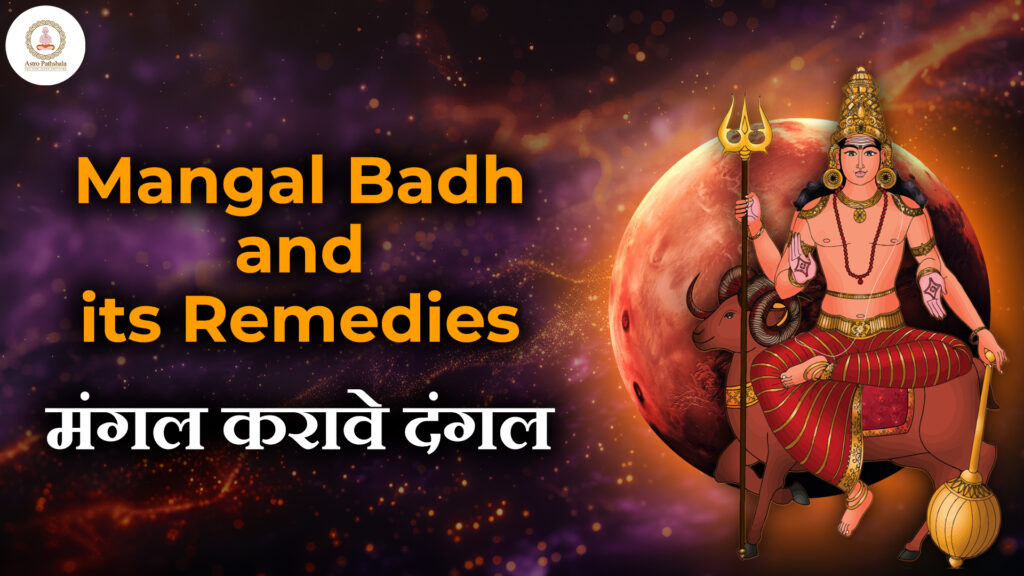In the ancient science of astrology, we hear about many concepts and rules that affect our lives in various ways. The two most famous systems of astrology, the Vedic Astrological System and the Lal Kitab Astrological System, have many things in common. One common concept is Drishti. Although the name of the concept is the same in both astrological systems, the overall rules in both systems are quite different.

In this blog, we are going to explore the concept of Drishti in Lal Kitab Astrology. We will also understand how it is different from the drishti/sight/aspect of planets in Vedic Astrology. We will explain the rules of Drishti/Sight according to the Red Book. Let’s delve into the fascinating world of Lal Kitab Predictions and Astrology.
Difference between Drishti in Vedic and Lal Kitab Astrology
While the name of the concept is the same in both astrological systems, the rules and overall concept are entirely different. In Vedic Astrology, astrologers attach drishti (aspect) to the planets, not the houses. This means that each planet has a different sight using which they gaze upon different houses and planets. But in Lal Kitab, the planets in the cabinet do not have their own sight or drishti. Instead, the houses provide the power of drishti or sight to planets positioned in them. For example, according to Lal Kitab Astrology, all planets positioned in the first house will watch the planets in the seventh house with complete drishti. Similarly, the planets in the fifth house watch the planets in the ninth house with half or 50% drishti.
According to Vedic Astrology, the planets in the first house have drishti on the planets in the seventh house. At the same time, the planet in the seventh house will also have drishti on the planet of the first house. However, this concept is not applicable in Lal Kitab. According to Lal Kitab Astrology, when the planet of the first house watches the planet of the seventh house, it is one-sided. The planet in the seventh house does not watch the planet placed in the first house. Astrologers apply the same principle to planets placed in the fourth house, as they cast their drishti (aspect) on the planets in the tenth house. However, the planet in the tenth house will not have its drishti on the planet in the fourth house.
Therefore, the only thing common between the concept of Drishti in Vedic and Lal Kitab is the name. The rules and overall concept are completely different.
The Rules of Drishti According to Lal Kitab
The rules of Drishti/sight/aspect according to Lal Kitab Astrology are simple but completely different from the rules of Vedic Astrology. Here are the detailed rules for reading the drishti of planets in a horoscope.
- Planets positioned in the first house have complete or 100% drishti on planets present in the seventh house.
- Planets present in the fourth house have complete or 100% drishti on the planets present in the tenth house.
- Planets positioned in the eighth house have 100% or complete drishti on planets present in the second house. It does not matter if the planet in the second house is its friend or enemy. It will ruin the results of the planet in the second house. For example, if Saturn is placed in the second house and Venus is in the eighth house, astrologers observe that Venus—despite being a friendly planet to Saturn—will spoil Saturn’s results. As a result, Saturn will not be able to deliver its positive outcomes.
- Planet in the third house watches the ninth and eleventh house with 50% drishti. For example, if Saturn is in the third house, it will affect the planet in the ninth house with 50% intensity.
- The planet positioned in the fifth house has half or 50% drishti on the planets present in the ninth house.
- The planet present in the second house has a quarter or 25% drishti on the planet present in the sixth house.
- The planet placed in the sixth house has a quarter or 25% drishti on the planet of the twelfth house.
- If the Sun is watching Saturn, then the results of Venus will also be affected negatively. For example, if the Sun is present in the first house and Saturn is in the seventh house, this means the Sun is watching Saturn. In these cases, the Sun will ruin the results of Saturn as well as the results of Venus.
According to Lal Kitab Prediction and Astrology, astrologers consider a planet without the drishti (aspect) of any other planet as a sleeping planet (soya hua grah). Similarly, if no planet occupies a house and no planet aspects it, they refer to that house as a sleeping house (soya hua bhaav).
Conclusion
To conclude our astrological journey in the world of Lal Kitab and the concept of Drishti, we can say that it is very different from the concept in Vedic Astrology. It is important to know the rules and apply them carefully whenever reading horoscopes. If you are keen on knowing the secrets hidden among the placements of planets in your horoscope, book a consultation with our experts. Astro Pathshala’s experienced astrologers have years of experience. They have read thousands of horoscopes during their work in the field of astrology. We have experts with expertise in Vedic Astrology, Lal Kitab Astrology, Numerology, Palmistry, KP Astrology, and many more.
If you are interested in making your future in the world of astrology or are just intrigued by this ancient science, you can enrol in our online courses. We are offering more than 40 courses on both our website and application, “Astro Pathshala.” Our commitment to quality drives everything we do. With a strong focus on excellence, we strive to provide the best education to all students. This is why our courses are priced affordably. To ensure an excellent learning experience, we offer best-in-class course content tailored for student success.
Thank you for reading
Read more informational Blogs 👇🏻
Lal Kitab Remedies for Saturn – जाने शनि के लाल किताब के उपाय
Learn the Effects of Lakshmi Yoga According to the Lal Kitab


